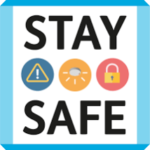 Happy Pride! Pride Celebrations across the country are facing real challenges concerning the safety and health of attendees. Not only are we concerned about HIV and a resurgence of MPox, but the threats of violence are real. If our work was not difficult enough, now it must be implemented in an environment that is hostile to the communities we need to reach.
Happy Pride! Pride Celebrations across the country are facing real challenges concerning the safety and health of attendees. Not only are we concerned about HIV and a resurgence of MPox, but the threats of violence are real. If our work was not difficult enough, now it must be implemented in an environment that is hostile to the communities we need to reach.
 NMAC holds lots of regional meetings and recently we’ve noticed a shift in the treatment of our guests. There is a significant increase in the level of disrespect and dour behavior in some regions of the country, particularly staff working in deep red states. As a result, NMAC is rethinking where and how to hold meetings. Safety for attendees was always considered when making site selections, now it is a priority.
NMAC holds lots of regional meetings and recently we’ve noticed a shift in the treatment of our guests. There is a significant increase in the level of disrespect and dour behavior in some regions of the country, particularly staff working in deep red states. As a result, NMAC is rethinking where and how to hold meetings. Safety for attendees was always considered when making site selections, now it is a priority.
While it’s disheartening to acknowledge the existence of violence against the communities hardest hit by HIV, here are some initial strategies that were crafted by ChatGPT for this e-newsletter:
- Develop a comprehensive code of conduct: Clearly outline expected behavior and explicitly state that discrimination, harassment, or violence based on HIV status, race, gender, sexual orientation, or gender identity will not be tolerated. The code of conduct will be prominently displayed and communicated to all participants and hotel staff before and during the conference.
- Provide staff training and education: NMAC will offer workplace support on inclusion, allyship, and understanding diverse gender identities and sexual orientations. Educating hotel staff about the issues faced by our communities can help foster empathy and respect.
- Implement a reporting system: Create a confidential and easily accessible reporting mechanism for incidents of harassment, discrimination, or violence. Encourage participants to report any incidents promptly and ensure that appropriate actions are taken in response.
- Engage security personnel: For our larger meetings, NMAC will have visible security personnel present at the conference venue to deter potential acts of violence or harassment. Make sure security staff are trained in LGBTQ sensitivity and are aware of the specific safety concerns faced by the community.
- Foster an inclusive culture: Emphasize the importance of inclusivity and respect through keynote speeches, panel discussions, and presentations. Encourage speakers and presenters to use inclusive language and promote diverse perspectives throughout the conference.
- Promote networking and support: Facilitate opportunities for participants to connect and support each other. Host networking events, discussion groups, or mentorship programs specifically designed for individuals attending the conference.
- Conduct risk assessments: Prior to the conference, conduct a thorough risk assessment to identify potential safety concerns and address them proactively. This can include reviewing the venue’s security measures, considering emergency protocols, and ensuring the accessibility of facilities for all attendees.
- Regularly evaluate and improve: Gather feedback from participants after the conference to evaluate the effectiveness of safety measures and identify areas for improvement. Incorporate suggestions and lessons learned into future conferences to continually enhance participant safety.
In addition to your physical safety, our movement needs to stay diligent about HIV and a resurgence of MPox. Here are some general guidelines to help mitigate the risk of transmission:
- Promote vaccinations: Encourage participants to be up to date with their vaccinations, including routine immunizations and any specific vaccines recommended for the region or specific risks associated with the conference location. Encourage attendees to consult their healthcare providers for guidance on appropriate vaccinations.
- Communicate health guidelines: Provide clear and accessible information to all participants about preventive measures, such as hand hygiene, respiratory etiquette (covering coughs and sneezes), and proper disposal of tissues. Display posters or signs promoting these practices throughout the conference venue.
- Ensure proper hygiene facilities: Make sure the conference venue has easily accessible handwashing stations equipped with soap, water, and hand sanitizers. Regularly restock these facilities to maintain hygiene standards.
- Encourage safe practices: Remind attendees to practice safe behaviors, such as using condoms, U=U, PrEP, or PEP. Provide free condoms.
- Implement infection control measures: Work closely with the hotel staff to ensure proper cleaning and disinfection protocols are in place, particularly for high-touch surfaces such as doorknobs, handrails, and restrooms. Provide ample waste bins for proper disposal of tissues and other waste.
- Facilitate testing and counseling services: Collaborate with local healthcare providers or organizations to offer voluntary testing and counseling services for HIV or other relevant diseases. Provide information on testing locations and encourage participants to take advantage of these services.
- Maintain a healthy environment: Ensure the conference venue has adequate ventilation to improve air circulation and reduce the risk of airborne transmission. Consider organizing sessions in open-air spaces whenever possible.
- Stay informed and follow local health guidelines: Monitor updates from local health authorities and follow their recommendations and guidelines regarding disease prevention and control measures. Stay informed about any specific risks or outbreaks in the area where the conference is being held.
This e-newsletter was created with the support of ChatGPT. Artificial Intelligence (AI) is changing the way we work. Remember, creating a safe environment requires ongoing commitment and vigilance. By implementing these measures and promoting a culture of respect and inclusion, everyone can contribute to making meetings safer for all participants.
Yours in the Struggle,

